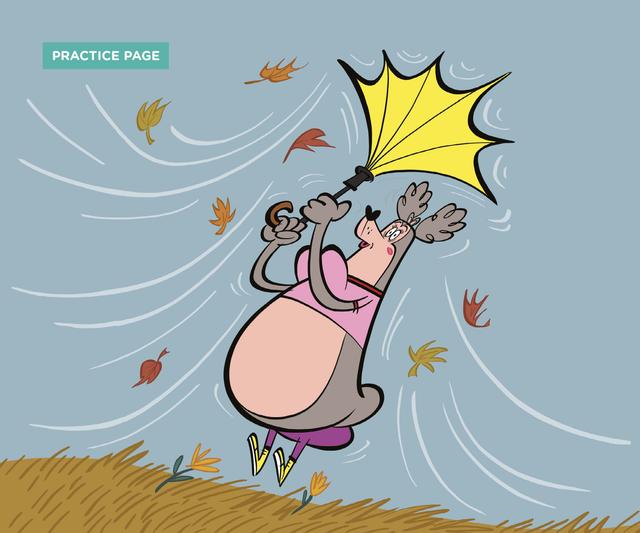Rich vocabulary associated with wind words
I can use the words ‘gust’, ‘flurry’ and ‘blustery’ effectively in multiple contexts.
Rich vocabulary associated with wind words
I can use the words ‘gust’, ‘flurry’ and ‘blustery’ effectively in multiple contexts.
These resources will be removed by end of Summer Term 2025.
Switch to our new teaching resources now - designed by teachers and leading subject experts, and tested in classrooms.
These resources were created for remote use during the pandemic and are not designed for classroom teaching.
Lesson details
Key learning points
- 'Gust' is a noun which means a blast of air or strong breeze.
- 'Flurry' is a noun which means a short, swirling gust.
- 'Blustery' is an adjective which means windy or blowing noisily.
Keywords
Noun - a naming word for people, places or things
Adjective - a word that describes a noun
Synonym - a word that has the same or similar meaning to another word
Word pair - words that often appear together
Common misconception
Two of the 'wind' words are nouns and one is an adjective. Pupils might not know the difference.
Discuss what word class the word pairs are and how this differs if the main word is an adjective or a noun.
To help you plan your year 4 english lesson on: Rich vocabulary associated with wind words, download all teaching resources for free and adapt to suit your pupils' needs...
To help you plan your year 4 english lesson on: Rich vocabulary associated with wind words, download all teaching resources for free and adapt to suit your pupils' needs.
The starter quiz will activate and check your pupils' prior knowledge, with versions available both with and without answers in PDF format.
We use learning cycles to break down learning into key concepts or ideas linked to the learning outcome. Each learning cycle features explanations with checks for understanding and practice tasks with feedback. All of this is found in our slide decks, ready for you to download and edit. The practice tasks are also available as printable worksheets and some lessons have additional materials with extra material you might need for teaching the lesson.
The assessment exit quiz will test your pupils' understanding of the key learning points.
Our video is a tool for planning, showing how other teachers might teach the lesson, offering helpful tips, modelled explanations and inspiration for your own delivery in the classroom. Plus, you can set it as homework or revision for pupils and keep their learning on track by sharing an online pupil version of this lesson.
Explore more key stage 2 english lessons from the Weather: wind and hot words unit, dive into the full secondary english curriculum, or learn more about lesson planning.

Licence
Starter quiz
6 Questions
finger
spotty
blow
night
morning
wind
Exit quiz
6 Questions





